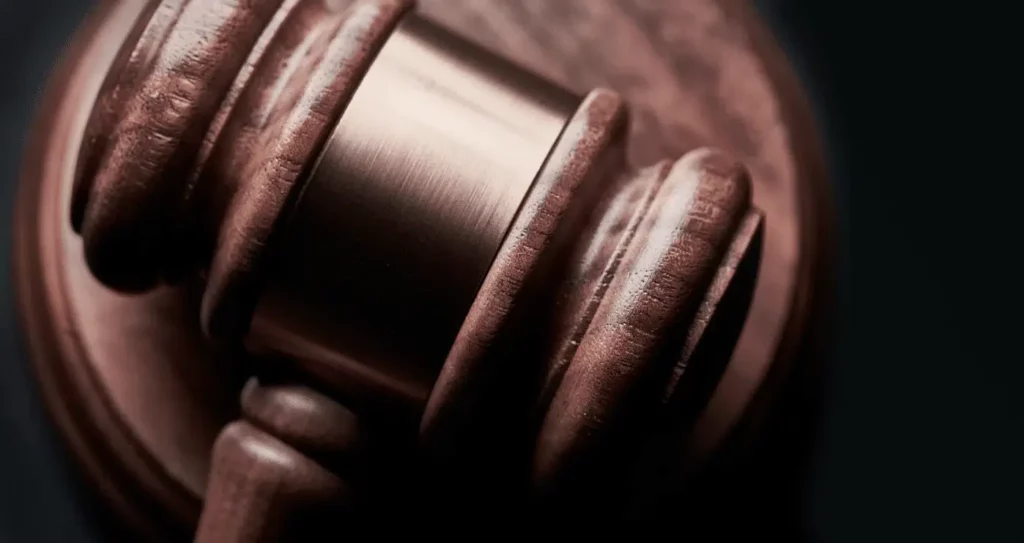
Flat fee structure means no surprise costs.
Custom solutions to protect your legacy.
7 generations in Denton, Texas.
Affidavit of Heirship
What happens when someone dies with no will? Often, the deceased person’s estate must go through probate. This is a legal process that can be long, expensive, and public.
However, if you have something called an “affidavit of heirship” or “affidavit of heirs,” you can often skip the court proceedings and ensure the property (usually real estate) is transferred quickly and smoothly to the rightful heirs.
At Hunter Sargent, we can assist you with any and all aspects of estate planning and estate administration, including preparing an affidavit of heirship. But is an affidavit of heirship right for you? Here’s an overview.

How to Prepare for an Affidavit of Heirs
The purpose of an affidavit of heirs is simple: to legally prove who is entitled to inherit property after someone’s death. Typically, the person who prepares the affidavit (called the “affiant”) is someone who was close to the decedent and who understands how the decedent would want their property to be passed to family members.
For example, imagine your best friend passes away without leaving a will. He owns a house that you know he intended to leave to his daughter. To make that transfer as uncomplicated as possible, you could consult an attorney to help you put together an heirship affidavit to prove that the intended heir is actually his daughter (and is, therefore, entitled to inherit the house).
As you might imagine, this document needs to be fairly detailed. Before creating one, you need to prepare:
- Make sure you have two “disinterested witnesses” (people not inheriting anything) who knew the decedent’s family
- Ensure the witnesses knew the decedent for at least 10 years
- Make sure you know the decedent’s time and place of death
- Gather marriage information about the deceased
- Make sure you have the deed to the property
- Names, dates of birth, and addresses of the decedent’s heirs
The affidavit must be notarized, so you should also find a notary public.
Reasons to Make an Affidavit of Heirs
Typically, an affidavit of heirship is filed when the following things are true:
- The only assets that need to be transferred are real properties
- There isn’t controversy about who should inherit the property
- The deceased did not leave a will
In some cases, an affidavit of heirs can be filed when the deceased did actually leave a will. If a will was left but not probated for four years after the person’s date of death, then filing an affidavit of heirs is the best course of action.
It isn’t mandatory to make an affidavit of heirs if the decedent died intestate (without a will). However, there are several good reasons to prepare one.
You Want to Keep the Case Out of Probate Court
The loss of a loved one is difficult for anyone. However, it can feel infinitely more difficult when the family members of the deceased must appear in probate court to determine how their loved one’s property will be divided.
Having an affidavit of heirship will usually prevent surviving family members from having to go through the probate process.
You Want to Save Money and Time
The probate process isn’t just emotionally difficult. It’s also expensive and time-consuming. If the surviving family members can avoid the additional investment of money and time (especially if it’s already clear who has legal claim to the property), filing an affidavit of heirship offers an easier solution. In Texas, the filing fee is usually around $15.
You Want to Expedite the Transfer
In some cases, it might be important to make sure the intended heir gets the title to the property in question as soon as possible. For example, if a child of the decedent intends to move into the home and they don’t currently have a permanent home, it’s in their best interests to have the deed transferred into their name as soon as possible.
It’s important to note that an affidavit of heirs only creates a “presumption of title.” This means that if the title to the property is transferred to an heir and someone else later believes they have a legal claim to the property, they can legally challenge the title transfer.
What Does an Affidavit of Heirship Include?
The affidavit of heirship must contain certain kinds of information in order to be valid:
- The name of the decedent
- The physical address and a detailed description of the property to be inherited
- The names of current and past spouses of the decedent
- The dates of each marriage and termination of marriage
- If spouses are deceased, the date and location of the death
- Your name
- How long you knew the decedent
- The time and place where the decedent died
- The decedent’s address at the time of death
- The name, date of birth, and other parent’s name for each child
- The names of adopted children or children raised by the decedent
- The name, date of birth, and current address (or date of death) for each of the decedent’s parents
- The names, dates of birth, and current physical addresses of each of the decedent’s siblings
- A list of any deceased children of the decedent
- Names of two disinterested witnesses who know the decedent’s family
- A statement that the decedent’s estate hasn’t been administrated
- A list of any unpaid debts left by the decedent
- A list of any unpaid estate taxes
Some people opt to prepare and file an affidavit of heirship themselves. However, when you work with an attorney, you can rest assured that everything is filed correctly.
This is crucial when it comes to protecting the legal heirs’ claim to the property — if it turns out the affidavit of heirship was inaccurately or incompletely filled out, it becomes much easier for another party to challenge its validity.
Even if you knew the decedent well, you may have trouble locating some necessary information (like the date and place of death of former spouses). Your lawyer will be able to help you locate this information quickly.
FAQs
What Is an Heirship?
If someone has the legal right to inherit the property of a deceased person, they are called an “heir.” An heirship is the state of being an heir to a property.
What Is an Affidavit of Heirship?
An affidavit of heirship establishes the heirs at law to a property if the property owner died without leaving a will. It includes the marital history and family history of the decedent, and it must be prepared by someone with personal knowledge of the deceased and their family.
The affidavit verifies the identity of the heirs and allows the property to be transferred without going through the probate process.
What Does an Affidavit of Heirship Lawyer Do?
An affidavit is a legal document, and like most legal documents, it must be completed and filed properly and thoroughly in order to be legitimate. A lawyer can help you make sure the information you include is complete and accurate. That sometimes includes locating any missing information for you in public records.
An affidavit of heirship lawyer also can make sure the form is filled out correctly and filed with the right court. In doing so, your attorney makes it much less likely that there will be any legal challenges to the transfer of ownership.

Schedule a meeting now To Start
The best time to plan your legacy was 10 years ago. The next best time is today. Everyone needs estate planning – the good news is it’s never too early and if you’re reading this, it’s not too late.


